Navigating and Searching code on GitHub
Overview
Teaching: 25 min
Exercises: 0 minQuestions
How can I use GitHub to navigate my code?
Objectives
Understand key features of GitHub to navigate into the code
You can access your last commit on GitHub in a very similar fashion
to git show. Find the commit in the top right corner of the repository.
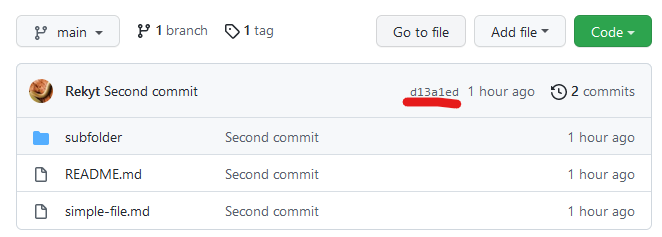
Then you can click on it to get the detail of the commit.

Similar to git log you can see the history of your commits in the project.

If you click on it you see the list of commits of your project.

Through the GitHub interface you can also look at individual files. For this hover your mouse on a file name and click on it.
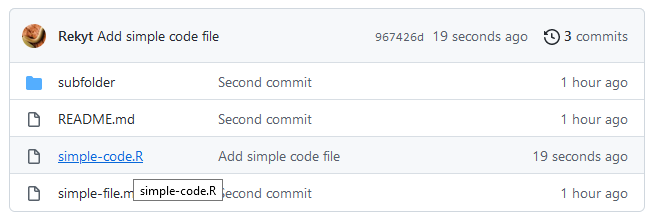
Then you can access the file interface of GitHub.
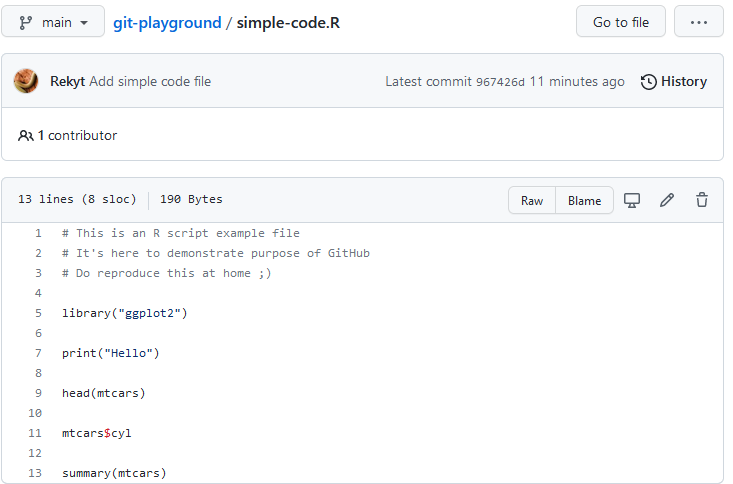
The window is split between the line numbers, the file name, the actual content of the file and many other features.
One of the most useful one is that you can always access the raw version of the file which makes it very simple to download. For that click on the “Raw” button on the top right corner of the file.
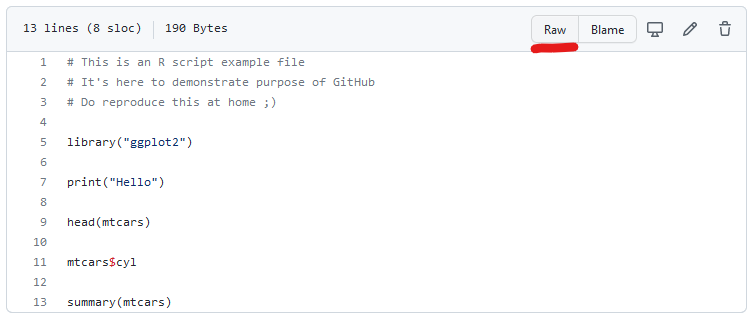
You can also access the commit history of a file by clicking on the history button in the top right, it will display a list of commits affecting that file.

Through the GitHub interface it is also possible to add collaborators to your project, so that they can also commit on the repository. To do that you have first to access the “Settings” tab of your project.

Then from there you have to click on “Collaborators” in the menu on the left. GitHub will ask you to confirm your password for security reasons.

Then click on “add people” to search for people by their GitHub username to add them to the project.
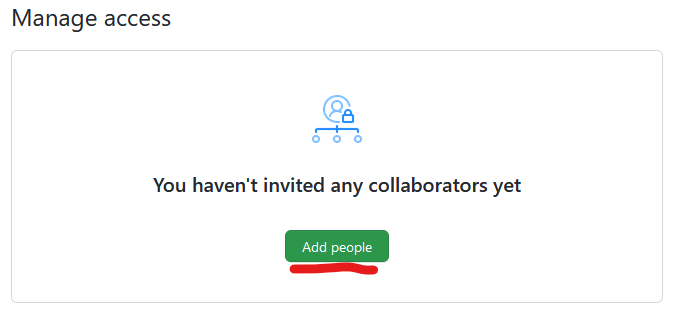
One additional interesting feature are “GitHub issues”. There messages that can form discussions, and you can track independent bugs and ideas with them. There are quite commonly used to track the progress (what has been done and needs to be done) of a project.
Key Points
Using GitHub commit history allows you to get access directly to your code.
You can look at specific files, have them as raw version, or acces their history
It is possible to select a specific line of code to link to it or cite it
Through the settings tab of a project you can collaborators
GitHub issues are a good way to keep track of progress, bugs, and ideas on a project